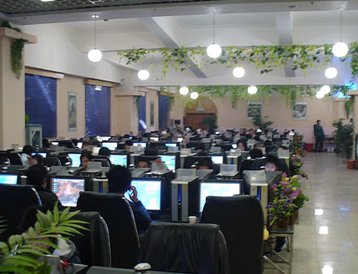The move to IPv6 has not been confined to the western world. China’s telecommunication service providers have been racing to update to the new Internet Protocol IPv6, and around 8 June, many of China’s technology players said they were speeding up efforts with a sense of urgency as the number of IPv4 addresses runs dry.
Google, Facebook, Yahoo!, Akamai and Limelight networks joined Internet service providers around the world on 8 June 2011 for a global scale 24-hour trial of IPv6. Major ISPs, home networking equipment manufacturers and web companies then worked to ensure they had products and services enabled for IPv6 by 6 June
IPv6 was developed by the Internet Engineering Task Force to succeed IPv4, the communications protocol for internet traffic that has now almost reached the number addresses it can allocate for devices.
Five year plan
China’s netizens reached 513m at the end of 2011 - which accounts for 38.3 percent of its total population, according to a report by China Internet Network Information Center. China, however, only has 330m IPv4 addresses.
It is estimated that a total of 34.5bn IP addresses will be needed in China in the next five years to cater for China’s hunger for the Internet. The Chinese Government treats IPv6 network evolution as one of the priorities for next-generation internet development, as evidenced by the announcement of Instructions for Next Generation Internet Development during the 12th Five-Year Period this March. (Five-Year Periods factor in a number of social and economic development initiatives for the People’s Republic,a nd are used for mapping strategy and growth targets.)
China said it will launch commercial IPv6 network pilot projects before the end of 2013; and by 2014 to 2015, it says more than 45 percent of its total population will have access to internet, and more than 25m users will be connected to IPv6 broadband. Part of this is also allowing for the mutual exchange of business operations between IPv4 and IPv6 protocols.
Chinese telcos racing to IPv6
Telecommunication players, including China Mobile, China Unicom and China Telecom are also pushing the evolution from IPv4 system to IPv6.
Li Zhengmao, VP of China Mobile, says his company is rolling out IPv6 in three phases over the next five years. Between 2012 and 2013 it is carrying out scale testing. During this phase it is kicking off its network restructuring efforts in 10 provinces and developing multiple LTEIPv6 terminals. It hopes to generate three million IPv6 users during this phase.
Between 2014 and 2015 it will upgrade more of its network with the aim of having all developed areas in the East and 50 percent of its networks in the Middle and West China to support IPv6 system. And in 2016, China Mobile see IPv6 rolled out to the rest of its network.
China Unicom’s work with IPv6 has led it to set the China Unicom Next Generation Network Working Group. It also plans to invest 800m CNY for commercial IPv6 pilot projects in ten of China’s cities, including Beijing, Shanghai and Shenzhen. It says it should have no less than 3m IPv6 broadband users by the end of 2013.
And China Telecom has launched IPv6 pilot projects over IPv4 commercial network in Hunan and Jiangsu Province, and plans to restructure its internet infrastructure in more provinces and cities soon. Like the other players, it is also aiming for 3m IPv6 users.
According to the evolution schedule of China Telecom, all of its backbone networks and about 10 percent of its metropolitan area networks will support IPv6 by 2012 to 2013; and by 2014 to 2015, all its metropolitan area networks in developed regions in the East and 50 percent of metropolitan area networks in the Middle and West China will support IPv6.
How equipment manufacturers and others are keeping up
Global information and communication solution provider Huawei used this year’s World Internet Day to announce it would provide permanent IPv6 access services to global users. It has cooperated with both domestic and foreign telecommunication players including Vodafone, France Telecom and Singapore Telecommunications to find solutions for transitional technical design verification, next generation internet migration roadmaps and overall solutions to help communications companies overcome the IPv4 address shortage.
In China it has also worked with the big telcos, and as part of this effort has deployed IPv6 networks successfully in many Chinese cities including Changsha, Wuxi, Shenzhen and Shanghai.
Huawei has a lot to benefit from the move to IPv6. It also provides more than 70 of the network equipment for China’s Next Generation Internet (CNGI), one of the largest IPv6 networks in the world.
On the other end of the scale, Internet service provider Tencent - one of the largest in China - has formulated a four-step IPv6 evolution strategy. It has built an IPv6 pilot operation platform and its QQ homepage has become a large comprehensive portal website which provides IPv6 services by using main domain name. Baidu has also put much thought behind IPv6 – China’s largest search engine has formulated an IPv6 migration strategy and applied for more than ten related patents.

